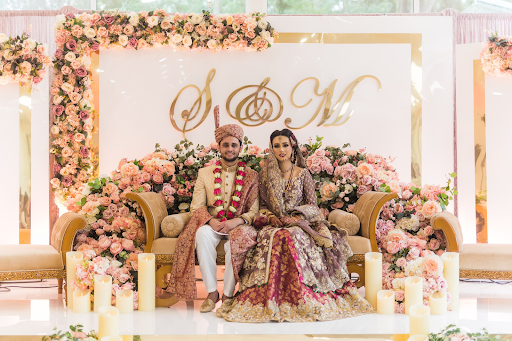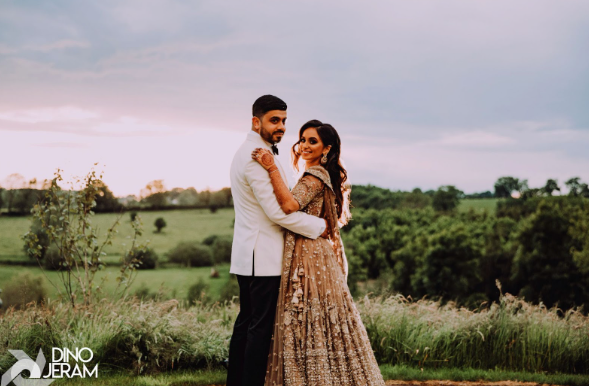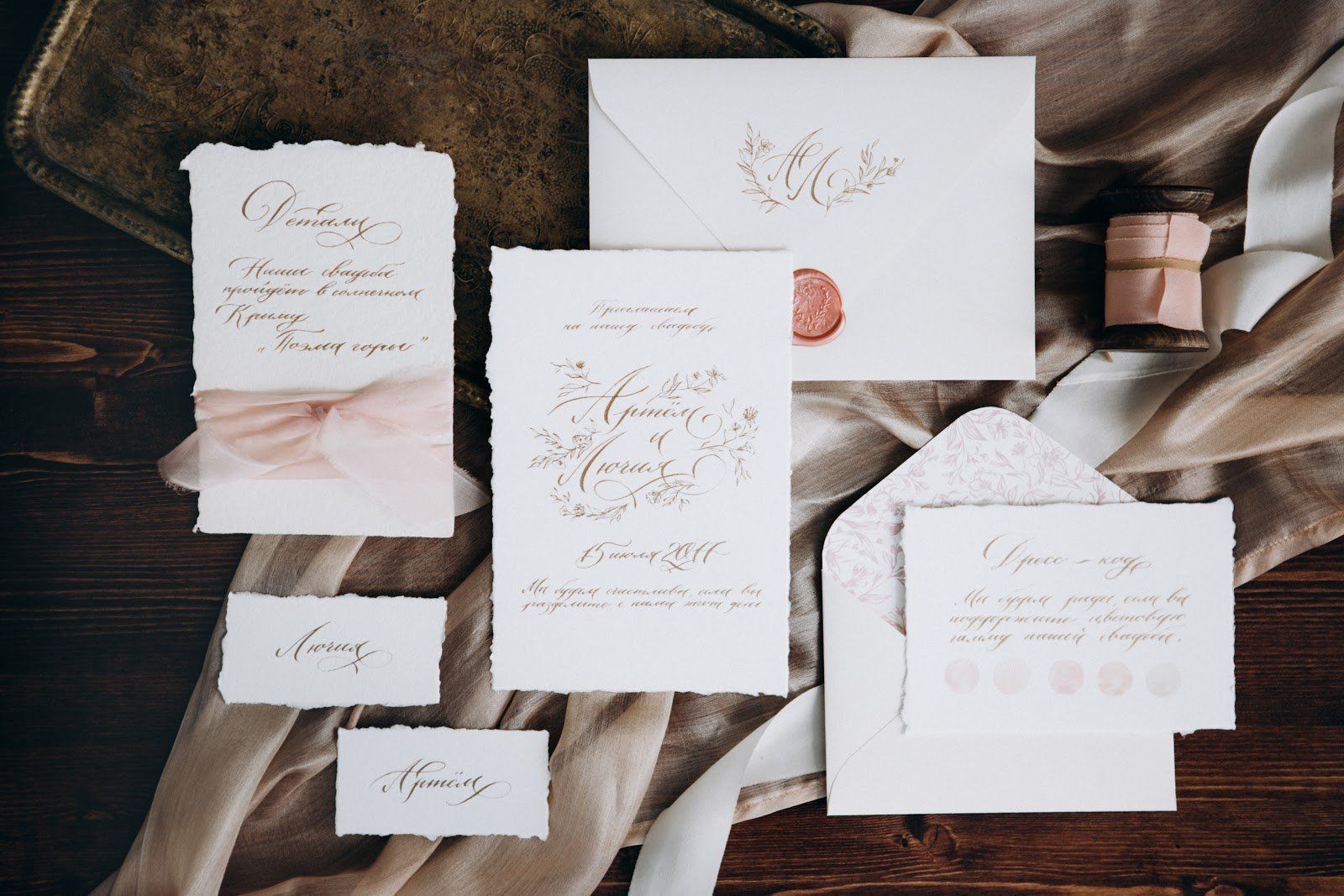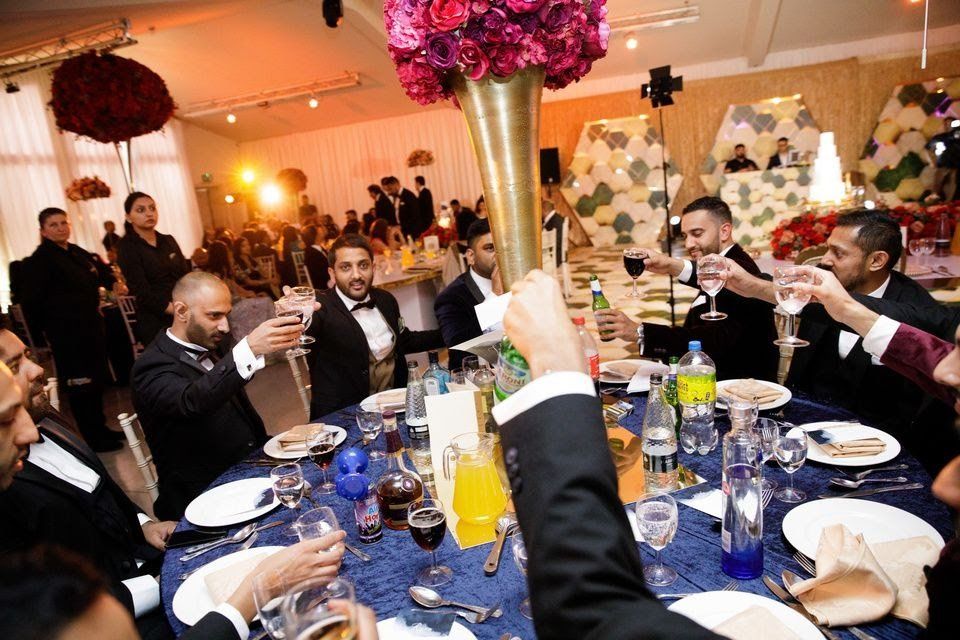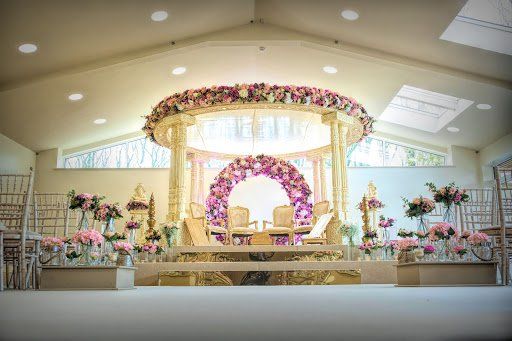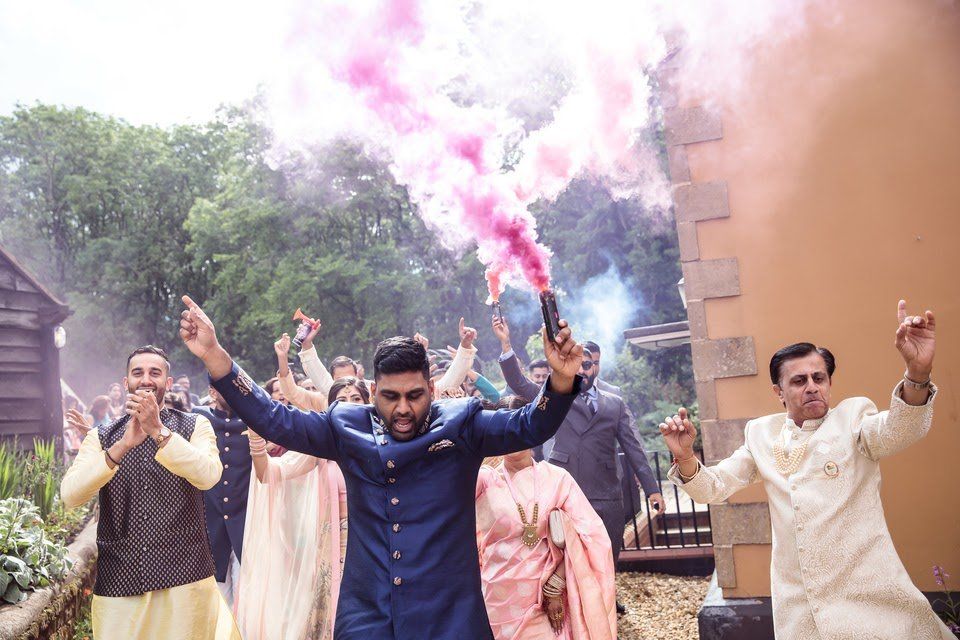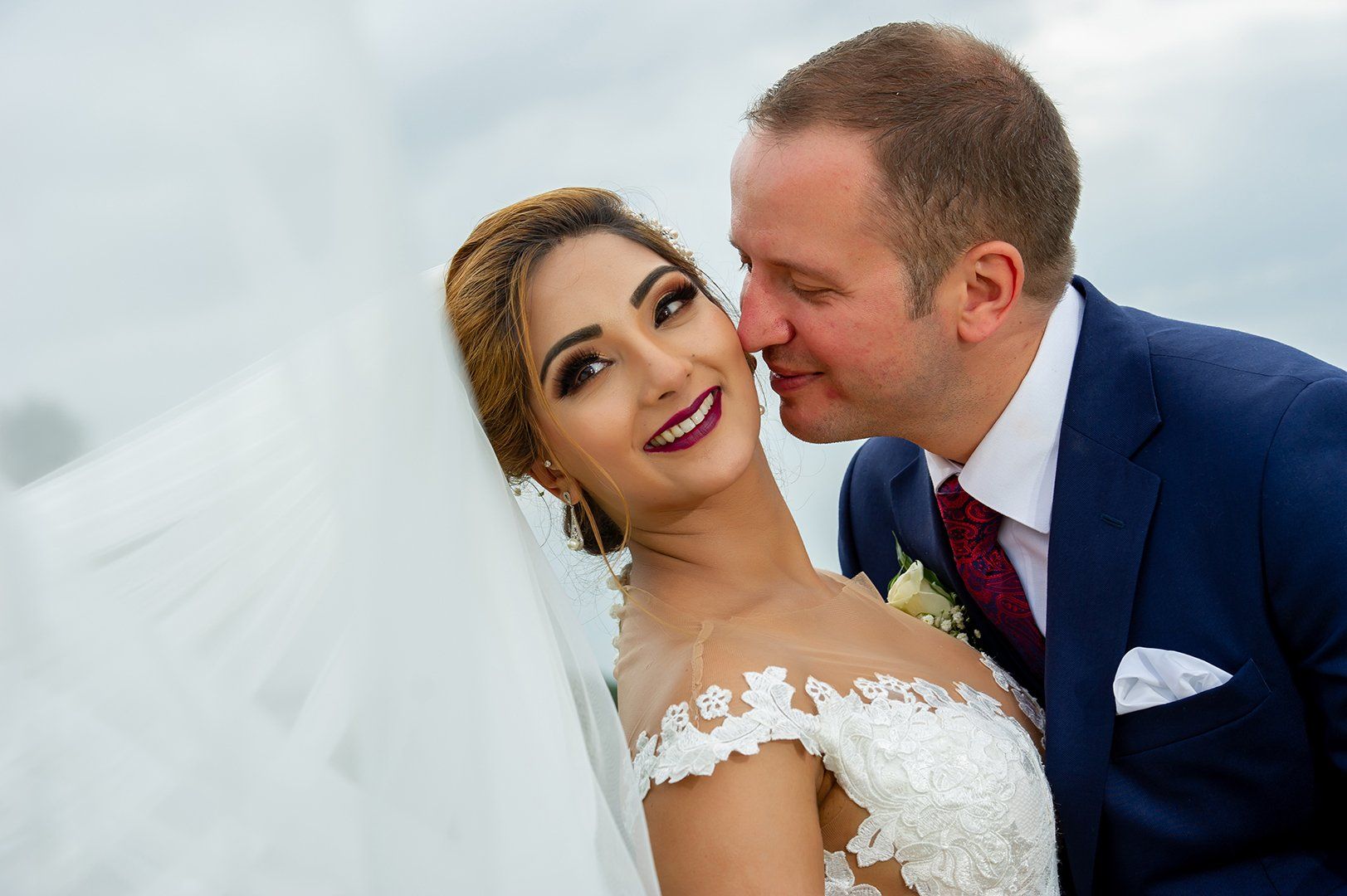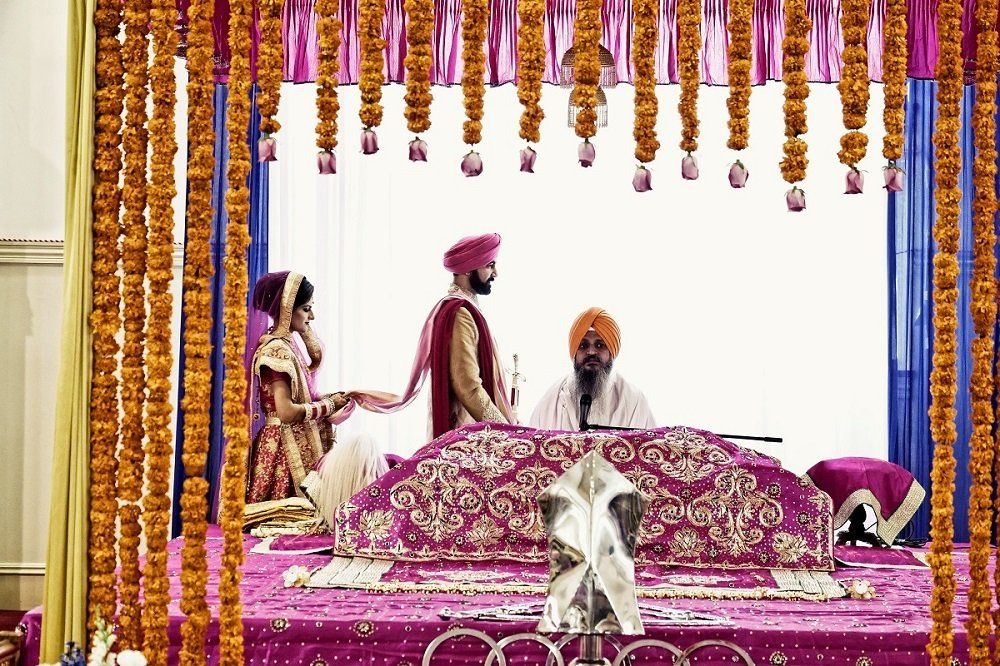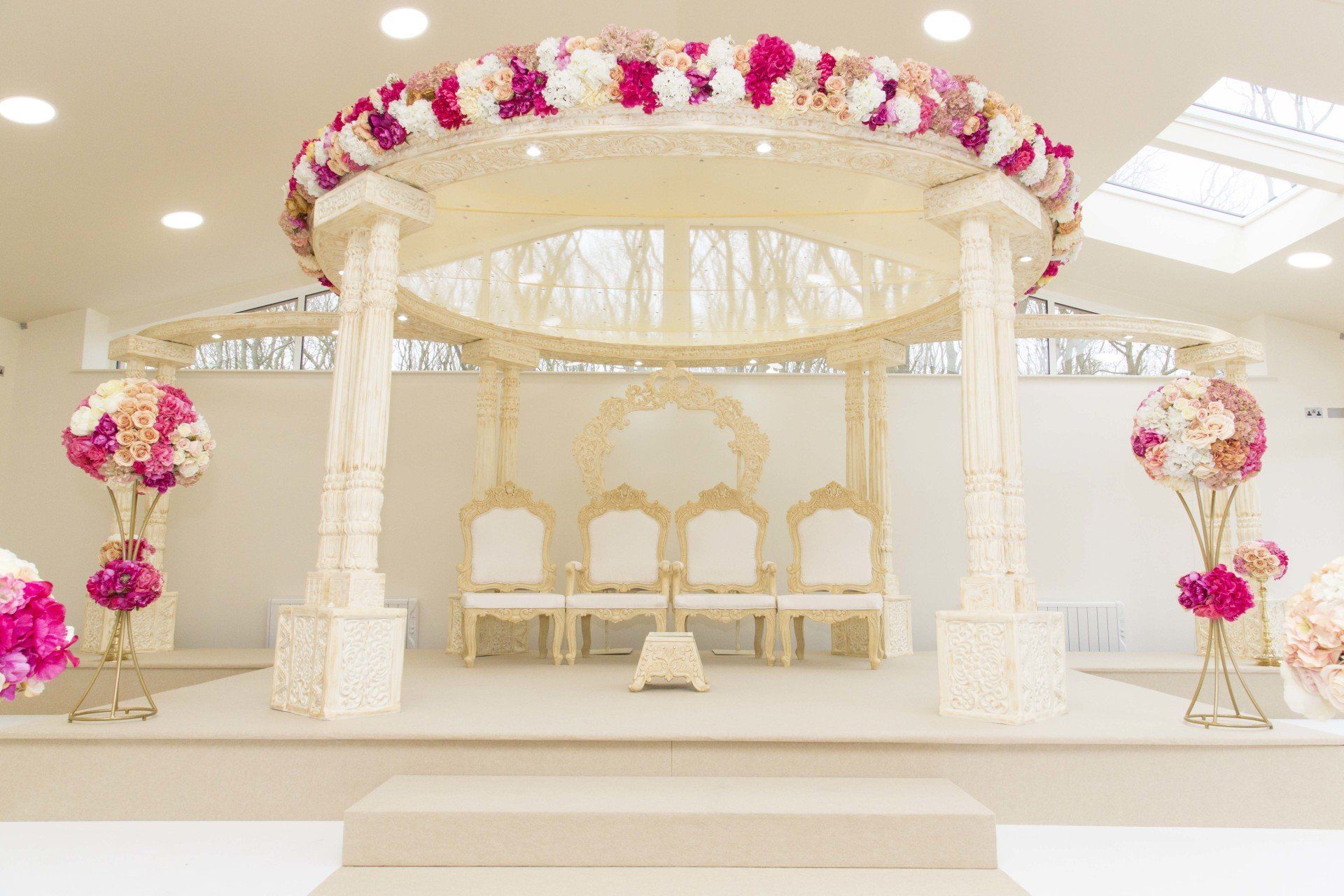The Wedding Cake Process – Choosing Your Wedding Cake
This guide explains the process of what to consider when choosing your Asian wedding cake, from our very own wedding specialist.
For those of us with a sweet tooth, a wedding cake can be one of the most important parts of the big day, so it’s crucial to get it perfect. Choosing the perfect wedding cake can be complicated with so many choices these days. After all, how do you choose a wedding cake that will confidently live up to your big day?
If you’ve been reading our Asian wedding checklist , you’ll know that the process of choosing your wedding cake should begin at least six months prior to your wedding. Of course, during the wedding season, all suppliers often become booked up soon in advance, so you’ll want to carefully time when to get in touch with your chosen baker.
This guide explains the process of what to consider when choosing your Asian wedding cake, from our very own wedding specialist, Dipti Patel, who is also the owner of one of our approved suppliers, the Rose & Violet Cake Company.
When creating a wedding cake, Dipti uses the finest ingredients so that the cake not only looks amazing, but it tastes light, luxurious and delectable. Rose & Violet Cake Companywill help you create a bespoke design. If you’re looking to find out the process of choosing your perfect wedding cake, keep reading this guide.

1. Find Your Baker
Finding a baker suited to your style is one of the most important steps of choosing your wedding cake. After all, each baker will have their own area of expertise - some may be more familiar with fondant icing, whereas others may be experts of buttercream icing.
Word of mouth is the best tried-and-tested method of finding a suitable baker, otherwise, a visit to wedding fayres can be an excellent way to meet a variety of bakers and get to know them before making a decision. Wedding fayres allow couples to meet local bakers and test out samples of wedding cake before committing to a private consultation.

2. The Consultation
Once you’ve chosen your baker, you’ll need to request a consultation with them to explain your expectations and what you have in mind. At this point, you’ll be discussing all the details regarding the wedding cake with your chosen baker, so you’ll want to be prepared with a few rough ideas, if you're looking for inspiration try Pinterest.
Don’t panic if you’re not too sure what you’re looking for, as your baker will have a collection of photos from their previous bakes to inspire you and your partner.
Rose & Violet Cake Companystarts off with an initial telephone consultation, moving onto a more detailed consultation including cake tasting. This allows couples to bring their ideas, imagination & creativity to the table allowing them to design and create their perfect wedding cake.
During this consultation, Dipti likes to get to know her clients to understand their personalities as a couple, their creativity, decor, theme and style. This helps to create a bespoke cake to encapsulate all of these entities which represents them on their wedding day.
From this point, Dipti begins the process of designing and creating sketches for the cake, which can typically be between three to four sketches to show different designs and styles. From these sketches, once they’re emailed over to the couple, the couple will be able to tell Dipti the bits they like and don’t like, before Dipti can go into a final design sketch. This final design sketch will be the design the couple fall in love with for their wedding day, a centerpiece at their reception for guests to admire and for the couple to be wow’d when they make their grand entrance.

3. Size of the Cake
Before deciding the size of your cake, you’ll need to have a rough estimate of the number of guests attending your wedding/wedding reception and whether the cake will be your main desert as this will also determine your portion sizes & amount required.Generally, three tiers will serve between 50 - 100 guests, four tiers for around 150 and five tiers for around 200 guests or more. All of these figures really depend on the type of ingredients, the layers and how big the portion sizes are. Typically if guests are having another type of desert, the cake will be 1 inch x 1 inch, if the cake is the desert, it is often cut 1 inch x 2 inch.
If you’re opting for a smaller wedding, don’t feel pressured to have a large wedding cake, as you don’t really want lots of cake left-over and possibly going to waste. Your wedding cake will need to be appropriately sized and depending on the number of guests attending your wedding, your cake baker will be able to advise on the cake size.
Tip : If your reception has high ceilings, you may like to consider increasing the height of your cake by adding more tiers or columns between the tiers. Nowadays most couples to avoid wasting cake will opt for a grand wedding cake consisting of 5 or 6 tiers, with only one tier which is real, the rest of the cake being dummy tiers. Your guests will never know.
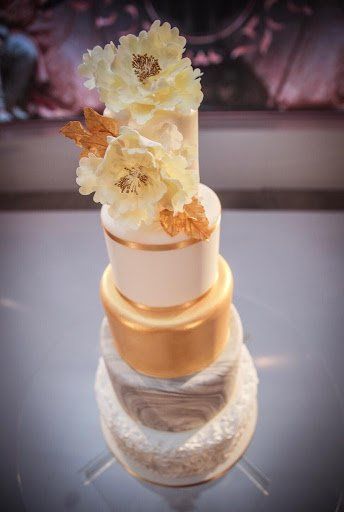
4. Cake Tasting
Something that might be the most exciting part of the wedding planning process has to be the cake tasting! Cake tasting is a big deal and is an excellent opportunity for the couple to get involved and get to know their baker. This part is often in the form of the second consultation appointment, so you may have already spoken to your chosen baker a handful of times.
During tastings, the couple are invited to sample exemplary wedding cakes which allows them to ask questions and review different flavours, fillings, icing and cake sponges. Feel free to take some research along with you to your wedding cake tasting appointment, including flowers, magazine cut-outs, screenshots or photos with any detail that truly inspires you.

Whilst having a beautiful wedding cake appeals to the visual senses, you’ll want to make sure it tastes incredible, too!
Dipti says “With cake tasting, my clients get a chance to sample cakes of various different flavours depending on their choice. They may choose a lemon drizzle cake, a toffee cake or even a delicious red velvet cake, which is something different from the ordinary vanilla sponge cake. I like to ensure that the cake tastes as good as it’s going to look on the big day.”
Before making up your mind on the taste, you’ll need to establish the environment in which your wedding cake will be in during your wedding day. If you’re having an outdoor wedding or in a hot room, you’ll want to ensure that any buttercream style cake can be stored in the venue's fridge until the last minute to avoid any melting. For this reason, confiding in your baker to find out which icing is most suitable for your wedding day can sometimes save your cake.
Tip : Not quite sure which flavour to have? Don’t be afraid to have different flavours across multiple tiers.
5. Choosing a design
The wedding cake is your opportunity to express your style, so try not to overthink your decisions. Your wedding cake doesn’t need to ultimately match your wedding decor, however, you’ll want to at least make sure that it fits in with the overall style of the day and the cake is an extra decoration to be admired and photographed by many of your guests.
Get inspired by creating mood boards of styles, elements and themes that you both love. Pinterest can be a fabulous inspiration tool with billions of ideas to set the wheels in motion for your wedding cake ideas. If you’re struggling to find any styles that you like, talk to your baker and they will be able to discuss the overall vision for your wedding day and how the cake can be incorporated into the day.
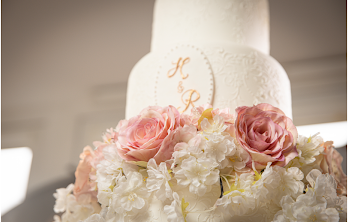
Dipti says “ My inspiration comes from a variety of different things, including buildings, architectural styles or from outfits that I’ve seen either online or inspiration from Pinterest, which is an excellent way of seeing what’s out there! Although, a lot of my interest comes from my clients who bring their own moodboards to the table.”

Rose & Violet Cake Companyoffers a highly professional and personal service from the initial consultation, bespoke design to delivery and set up of your breath taking wedding cake.
Every cake will be unique in design, delectable in taste and the art of perfection ensuring you and your guests have a mouth watering experience to remember for years to come.
Like every fairy story there is a beginning, middle and an end. We begin by understanding and visualising your perfect wedding cake to create a bespoke design.
Using the finest ingredients we will create a truly delicious wedding cake that looks fabulous and tastes delightful.
To see some more beautiful finished cakes to give you inspo, check out the Rose and Violet Cake Company Gallery page.
